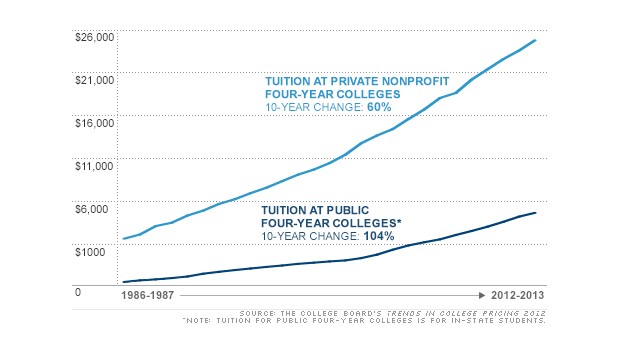 e-virtuoses: Les chercheurs passent au crible le jeu vidéo destiné à soigner, communiquer et former
e-virtuoses: Les chercheurs passent au crible le jeu vidéo destiné à soigner, communiquer et former Les chercheurs de la scène internationale viennent aux e-virtuoses pour montrer leurs derniers résultats et travaux autour de l’impact du jeu vidéo, du Serious Game et de la Gamification.
Dans un contexte économique en panne, le marché du jeu vidéo maintient une santé insolente. Cette industrie ne se contente plus de divertir et investit les marchés de la santé, de la formation, de l’éducation, de la publicité, de la défense, de la sécurité, de la politique, de la culture… Le jeu vidéo et par extension le game design, constituent des vecteurs d’innovations. Preuve en est, la CCI Grand Hainaut ouvre depuis début janvier une cellule R&D dédiée à la ludologie (étude scientifique des jeux et de leurs usages). En parallèle, elle organise les 4 et 5 juin prochains, pour la 2ème année consécutive, le colloque scientifique international e-virtuoses qui regroupe tous les experts et chercheurs du domaine pour faire progresser les théories et les innovations dans ce domaine.
Les e-virtuoses se focalisent sur la question de l’évaluation du jeu et par le jeu « Le jeu peut-il être évalué? Peut-on évaluer par le jeu? Pour qui souhaiterait se lancer dans une telle partie, la prudence est de mise: les règles établies pourront être appelées à changer pour espérer gagner. Quant à ceux qui préfèrent rester hors jeu, sont-ils nécessairement perdants? Pour trouver des éléments de réponses à ces questions, il convient encore de découvrir et d’avancer moult pions sur l’échiquier sans fin de la découverte scientifique. C’est dans cet esprit que se lance la 2ème manche du colloque international des e-virtuoses dédiés à la ludologie et ses usages instrumentalisés » détaille, Julian Alvarez, responsable de la cellule R&D Ludologie de la CCI Grand Hainaut et enseignant-chercheur au laboratoire CIREL de Lille 1.
 Listes des principaux chercheurs internationaux qui soutiennent le colloque scientifique des e-virtuoses
Listes des principaux chercheurs internationaux qui soutiennent le colloque scientifique des e-virtuoses Serge Agostinelli (Université d'Aix-Marseille, France)
Julian Alvarez (Cellule R&D Ludologie - CCI Grand Hainaut / Université de Lille Nord de France, France)
Sylvester Arnab (Université de Coventry, UK)
Per Backlund (Université de Skövde, Suède)
Raquel Becerril Ortega (Université de Lille Nord de France, France)
Philippe Bonfils (Université du Sud Toulon-Var, France)
Gilles Brougère (Université Paris 13 – Sorbonne Paris Cité, France)
Pierre-André Caron (Université de Lille Nord de France, France)
Christophe Chaillou (Université de Lille Nord de France, France)
Yann Coello (Université de Lille Nord de France, France)
Damien Djaouti (Université de Montpellier II, France)
Pascal Estraillier (Université de La Rochelle, France)
Patrick Felicia (Waterford Institute of Technology, Irlande)
Maurizio Forte (Université de Californie, USA)
Sara de Freitas (Université de Coventry, UK)
Abdelkader Gouaich (Université de Montpellier, France)
Sylvain Haudegond (Cellule R&D Ludologie - CCI Grand Hainaut)
Jean Heutte (Université de Lille Nord de France, France)
Pamela Kato (Medical Center university de Utrecht, Pays-Bas)
Catherine Kellner (Université de Lorraine, France)
Christophe Kolski (Université de Lille Nord de France - UVHC, France)
Michel Lavigne (Université de Castres, France)
Sandy Louchart (Université Heriot-Watt, Ecosse)
Hélène Michel (École de Management de Grenoble, France)
Denis Mottet (Université de Montpellier, France)
Louise Sauvé (Université du Québec à Montréal, Canada)
Gilson Schwartz (Université de São Paulo, Brésil)
Pascal Staccini (Université Nice-Sophia Antipolis, Segamed, UMVF-UNF3S, France)
Franck Tarpin-Bernard (Université de Grenoble, France)
André Tricot (Université de Toulouse, France)
Philippe Useille (Université de Lille Nord de France - UVHC, France)
Plus d’informations à cette adresse:
http://www.e-virtuoses.net/fr/awards.html.
 e-virtuoses: sift Imscrúdaitheoirí tríd an cluiche físeán i gceist a chóireáil, cumarsáid agus foirm. Taighdeoirí teacht idirnáisiúnta r-virtuosos a gcuid oibre a thaispeáint agus torthaí le déanaí ar thionchar na cluichí físeáin, cluichí tromchúiseach agus Gamification. Níos mó...
e-virtuoses: sift Imscrúdaitheoirí tríd an cluiche físeán i gceist a chóireáil, cumarsáid agus foirm. Taighdeoirí teacht idirnáisiúnta r-virtuosos a gcuid oibre a thaispeáint agus torthaí le déanaí ar thionchar na cluichí físeáin, cluichí tromchúiseach agus Gamification. Níos mó...







/https%3A%2F%2Fprofilepics.canalblog.com%2Fprofilepics%2F1%2F0%2F1076071.jpg)